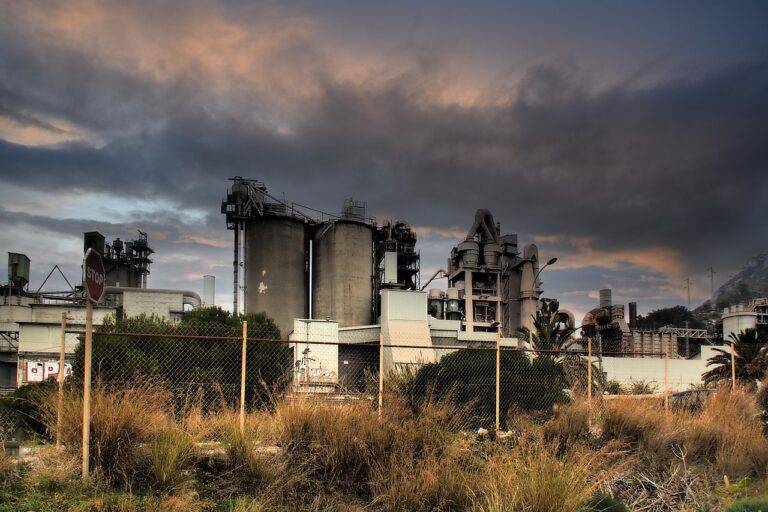The Future of Agro-biotechnology: Gold bet, Tiger exch login, Betbook250
gold bet, tiger exch login, betbook250: The Future of Agro-biotechnology
Agro-biotechnology, or agricultural biotechnology, is a rapidly evolving field that holds immense potential for transforming the way we produce food and manage agricultural systems. By harnessing the power of genetic engineering, genomics, and other cutting-edge technologies, agro-biotechnology offers solutions to some of the most pressing challenges facing agriculture today, including climate change, food security, and sustainability.
In this article, we will explore the latest developments in agro-biotechnology and discuss its potential impact on the future of agriculture. From genetically modified crops to precision farming, agro-biotechnology is reshaping the way we grow, harvest, and distribute food around the world.
The Rise of Genetically Modified Crops
Genetically modified (GM) crops have been a controversial topic in the agricultural world for decades. Despite the controversy, GM crops have become increasingly prevalent in recent years, with millions of hectares of land now dedicated to growing these engineered plants.
GM crops offer a range of benefits, including increased yields, reduced pesticide use, and improved resistance to pests and diseases. These traits are achieved through the introduction of specific genes into the crop’s DNA, altering its genetic makeup to confer desirable traits.
While GM crops have been widely adopted in some regions, others remain skeptical of their potential risks and long-term effects. As technology continues to advance, researchers are working on developing new varieties of GM crops that address even more complex challenges, such as drought resistance and nutrient efficiency.
Precision Farming and Data-driven Agriculture
One of the most exciting developments in agro-biotechnology is the advent of precision farming. This approach leverages data analytics, sensors, and other digital technologies to optimize every aspect of the farming process, from planting and irrigation to pest control and harvesting.
By collecting and analyzing vast amounts of data, farmers can make more informed decisions and implement targeted interventions that maximize productivity and efficiency. Precision farming can help reduce resource use, minimize environmental impact, and improve overall crop health and quality.
As the Internet of Things (IoT) continues to expand, we can expect to see even more sophisticated applications of precision farming, such as autonomous vehicles, drones, and robotic systems that handle various tasks in the field. These technologies will enable farmers to operate more sustainably and profitably, ushering in a new era of smart agriculture.
Biotechnology and Climate Change
Climate change poses a significant threat to global agriculture, impacting crop yields, water availability, soil health, and biodiversity. Agro-biotechnology offers a range of solutions to help mitigate the effects of climate change and build resilience in agricultural systems.
For example, scientists are working on developing crops that can thrive in extreme weather conditions, such as drought, heat, and salinity. By introducing genes that confer tolerance to these stressors, farmers can continue to grow crops in challenging environments and secure their livelihoods.
Biotechnology can also play a role in reducing agriculture’s carbon footprint by promoting sustainable practices, such as conservation tillage, cover cropping, and integrated pest management. These approaches help sequester carbon in the soil, reduce greenhouse gas emissions, and improve overall ecosystem health.
The Future of Agro-biotechnology
As we look ahead to the future of agriculture, it is clear that agro-biotechnology will play an increasingly pivotal role in shaping the way we produce food and manage our natural resources. By harnessing the power of genetic engineering, digital technologies, and advanced analytics, we can address the complex challenges facing agriculture and create a more sustainable and resilient food system.
From GM crops to precision farming and climate-smart agriculture, agro-biotechnology offers a wealth of opportunities to enhance productivity, profitability, and environmental stewardship. As researchers continue to push the boundaries of innovation, we can expect to see even more groundbreaking developments that revolutionize the way we think about agriculture.
As we strive towards a more sustainable and food-secure future, agro-biotechnology will be a key driver of change, enabling us to overcome the challenges of a rapidly changing world and build a brighter future for generations to come.
FAQs
Q: Are GM crops safe to eat?
A: The safety of GM crops has been extensively studied, with numerous scientific bodies and regulatory agencies concluding that they are safe for human consumption. However, ongoing research is essential to monitor any potential long-term impacts.
Q: How does precision farming benefit the environment?
A: Precision farming helps minimize resource use, reduce chemical inputs, and optimize farm management practices, leading to a decrease in environmental pollution and habitat destruction.
Q: What role does biotechnology play in addressing food security?
A: Biotechnology enables the development of crops with enhanced nutritional content, higher yields, and resilience to pests and diseases, helping ensure food security for a growing global population.







